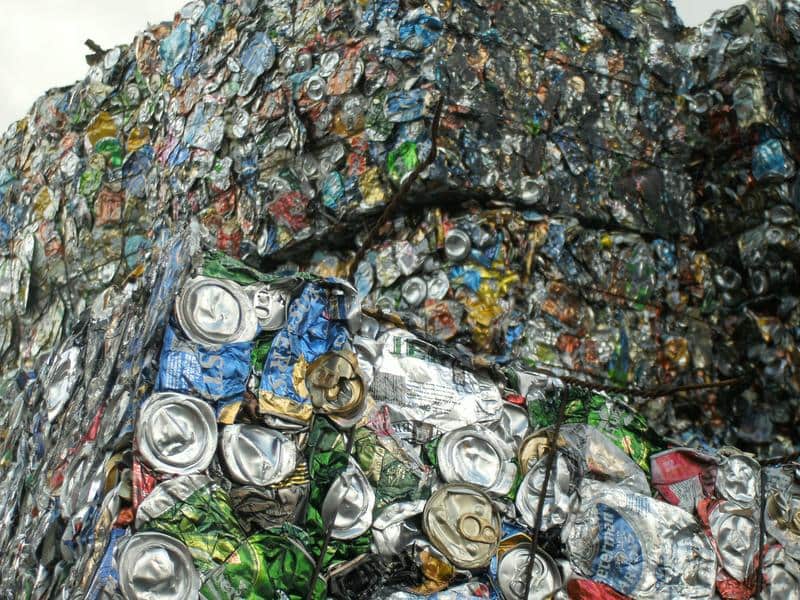OPINION: Rick Hindley, executive director at The Aluminium Packaging Recycling Organisation (Alupro) responds to LARAC’s recently published policy paper on local authority waste funding.
LARAC’s recent policy paper on Local Authority Waste Funding is essential reading, given the live debate regarding packaging pollution, producer responsibility reform, local government funding and the health of the recycling industry in the UK – all of which are inextricably linked.
There is absolutely no doubt that local authorities will have a critical role to play in fulfilling the requirements of the EU Circular Economy Package (CEP) and the delivery of the aspirations of the 25YEP. All this at a time when local authority funding has been reduced to unsustainable levels; this has resulted in shrinking council officer numbers, reduction in householder communications and a need to move towards more cost-efficient collection systems. The problems have been exacerbated by a lack of Government direction, all contributing to overall recycling rates stalling. And yet, if the aspirations of the 25YEP are to be realised, the collection of used packaging materials for recycling is vital.
Reform
Given this background, LARAC’s paper (see letsrecycle.com story) couldn’t have been published at a better time and the recommendations must be fully considered.
The requirements of the CEP will necessitate reform of the producer responsibility system. To ensure that a workable system is in place, the packaging industry must cover at least 85% of the collection costs of packaging collected at kerbside, currently incurred by local authorities. Whilst industry is prepared to accept this additional burden, it expects in return that the systems are run in the most cost-effective way, collection levels are increased and recyclate quality is improved. It is vitally important that a system is developed that ensures the cost burden is shared fairly and that the true net cost of collecting individual materials is taken into account. We are actively engaged with this reform work, through the ACP.
Approximately 94,000 tonnes of aluminium packaging was recycled last year, generating an estimated £75m income for councils and waste reprocessors. Aluminium represents less than 1% of the household waste stream, yet represents around 25% of the value derived from the sale of recyclables by local authorities and their collection partners. This income is used to offset costs of disposal for low value materials. The recycling rate for aluminium drinks cans continues to increase year on year, hitting 72% in 2017 (up from 70% in 2016), whilst the national recycling rate for all aluminium packaging reached 51% (up from 50% in 2016). This significant waste stream and resulting financial contribution must not be lost to local authorities.
Consequences
Whilst we support the full and detailed assessment of what a DRS could do to boost recycling performance, we are still concerned about the unintended consequences. It is unrealistic to compare DRS evidence from other countries, as they do not have the well-established and effective kerbside systems that operate in the UK, particularly for valuable metal packaging. DRS on-the-go is worthy of further investigation; the recent report by Suez explores the implications and considerations of such as system and should contribute to this debate.
Whilst it is contentious, ‘pay as you throw’ (PAYT) should be given serious consideration. Waste management and communications consultancy, Pelican Communications, recently released the results of online research with 1,000 UK households to understand their attitudes to recycling and paying for residual waste collections. PAYT has the support of one in three people, but this rises to over 65% when the potential environmental benefits are explained in more detail. PAYT is not without consequences, and so we fully support LARAC’s recommendation for comprehensive research into this option.

Aluminium packaging is infinitely recyclable and has no loss of quality when recycled, says Alupro’s Rick Hindley
Materials should be designed with recyclability in mind. Aluminium packaging is infinitely recyclable and has no loss of quality when recycled. And 92% of the aluminium packaging collected for recycling in the UK, is recycled within Europe; this demonstrates that there is more than sufficient capacity within the EU to recycle the aluminium packaging recovered for recycling in the UK. A lack of information and confusion is often a reason for low recycling rates, so we are calling for properly funded consumer focused behaviour change programmes, with clear recycling messages. We work with over 80 local authorities to deliver our MetalMatters programme, a tried and tested communications programme to increase metal recycling at kerbside. Whilst many other councils are keen to run this programme, they simply don’t have the budget to do so, even though a return on investment can be achieved within 12 months.
Research
In conclusion, we support LARAC’s call for detailed research (including full impact assessments) to be carried out into all the options which could deliver increased recycling, together with the required funding, to feed into the detailed strategies needed to deliver the 25 YEP.
The post Response to LARAC’s paper ‘The Future of Local Authority Waste Funding’ appeared first on letsrecycle.com.
Source: letsrecycle.com Metal



